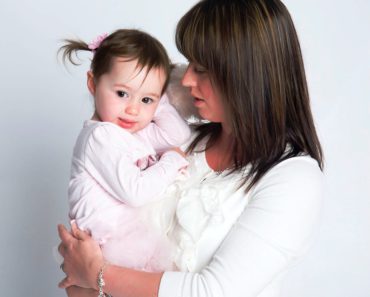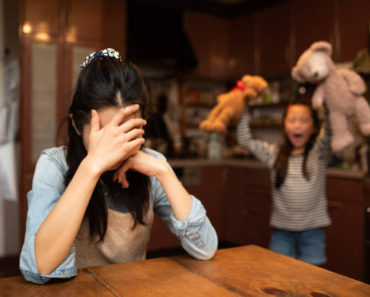Contents
- 1 Signs of Cheater’s Guilt in the Stepparent Context: Unveiling the Telltale Indications
- 2 Signs of Cheaters Guilt in Stepparent Context
- 2.1 How can a stepparent tell if their partner is feeling guilty about cheating in the relationship?
- 2.2 Are there any common signs or behaviors that stepparents might observe in their partner if they are experiencing guilt about cheating?
- 2.3 What steps can a stepparent take to address and navigate their partner’s feelings of guilt after cheating in the context of their blended family?
- 2.4 Related Posts

“Cheater’s Guilt Signs: Discover the telltale signs of guilt in a stepparent who has cheated. This article examines the emotional and behavioral indicators that may arise in a cheating stepparent and provides insights on how to navigate this challenging situation. Gain valuable understanding and coping strategies for healing within a blended family.”
Signs of Cheater’s Guilt in the Stepparent Context: Unveiling the Telltale Indications
Signs of Cheater’s Guilt in the Stepparent Context: Unveiling the Telltale Indications
When it comes to being a stepparent, building trust and maintaining open communication are essential for a healthy blended family dynamic. However, sometimes suspicions may arise regarding a stepparent’s fidelity, leading to the question of whether cheater’s guilt exists in this specific context.
1. Defensiveness and Avoidance: If a stepparent becomes excessively defensive or avoids discussing their actions or whereabouts, it could be a sign of cheater’s guilt. This behavior may include deflecting questions, becoming easily agitated, or changing the topic abruptly.
2. Inconsistent Stories: When inconsistencies emerge in a stepparent’s explanations or stories, it raises suspicion. These inconsistencies could pertain to daily activities, interactions with individuals outside the family, or unexplained absences.
3. Secretive Behavior: Engaging in secretive actions, such as hiding phone conversations, deleting messages, or keeping electronic devices passcode-protected, can be indicative of cheater’s guilt. These actions suggest an intention to withhold information or maintain hidden relationships.
4. Changes in Appearance or Habits: If a stepparent suddenly starts paying more attention to their physical appearance, buying new clothes, adopting a different style, or spending excessive time grooming, it may be a sign of guilt associated with cheating. Alterations in personal habits without a reasonable explanation are also worth noting.
5. Increased Absences: A stepparent who frequently finds reasons to be away from home without any clear justification could be exhibiting signs of cheater’s guilt. These absences may be framed as work-related, social events, or personal errands, but the frequency and lack of transparency raise suspicion.
6. Sudden Emotional Distance: A stepparent who becomes emotionally distant, detached, or unresponsive to their partner or stepchildren may be experiencing guilt related to cheating. This shift in emotional connection can lead to strained relationships and a breakdown in communication within the blended family.
While these signs may indicate potential cheater’s guilt, it is crucial to approach the situation with caution and gather more evidence before jumping to conclusions. Honest and open communication between all family members is vital when dealing with suspicions of infidelity in the stepparent context.
Remember that these signs are not foolproof evidence of cheating, as there could be other underlying reasons for such behaviors. Seeking professional help, such as therapy or counseling, can provide guidance and support for both the individuals involved and the entire family unit.
Signs of Cheaters Guilt in Stepparent Context
1. Unusual Secrecy and Defensiveness
When a stepparent is experiencing guilt for cheating, they may become excessively secretive and defensive about their actions. They might start hiding their phone or computer, avoiding conversations about their whereabouts, or becoming easily agitated when questioned about their activities.
2. Sudden Changes in Behavior
Guilt can cause significant changes in a cheater’s behavior. In the context of stepparenting, you might notice sudden mood swings, withdrawal from family activities, or a decrease in involvement with the stepchildren. These changes often stem from feelings of guilt and inner conflict.
3. Overcompensation and Extra Efforts
To alleviate their guilt, a cheating stepparent may go above and beyond to overcompensate for their actions. They might excessively shower the stepchildren with gifts or attention, becoming overly affectionate or indulgent. This behavior can be an attempt to mask their guilt and maintain a facade of being a loving and committed stepparent.
It’s important to note that these signs are not definitive proof of cheating guilt, as individuals may exhibit these behaviors for other reasons. Open communication and addressing any concerns directly can help uncover the truth and work towards healing in a stepparenting relationship.
How can a stepparent tell if their partner is feeling guilty about cheating in the relationship?
As a stepparent, it’s important to maintain open and honest communication with your partner in order to address any issues or concerns in your relationship. If you suspect that your partner is feeling guilty about cheating, here are a few signs to look out for:
1. Change in behavior: Your partner may exhibit sudden changes in their behavior, such as becoming more distant or withdrawn. They might also start acting more irritable or defensive when confronted about their actions.
2. Lack of eye contact: Guilt can be a powerful emotion that can make individuals avoid eye contact. If your partner avoids making eye contact while discussing sensitive topics or seems uneasy when looking directly at you, it could be a sign of guilt.
3. Increased secrecy: If your partner suddenly starts guarding their phone or computer more closely, it could indicate they’re trying to hide something. They might also become more secretive about their whereabouts or who they’re spending time with.
4. Unusual gift-giving: Guilty partners sometimes try to overcompensate by showering their significant other with gifts or acts of kindness. If your partner starts giving you extravagant gifts or doing things out of character, it could be a sign of guilt.
5. Emotional distance: People who feel guilty about cheating may pull away emotionally as a way to protect themselves or avoid facing the consequences. If you notice a significant decline in emotional intimacy or engagement with your partner, it’s worth having a conversation about what might be causing this change.
It’s essential to remember that these signs can be indicative of various issues, and it’s crucial to approach discussions about infidelity with sensitivity and empathy. If you suspect your partner has cheated, having an open and honest conversation is vital to address the issue and determine the best path forward for your relationship. Seeking professional help from a therapist or relationship counselor can also provide guidance during this challenging time.
Are there any common signs or behaviors that stepparents might observe in their partner if they are experiencing guilt about cheating?
As a stepparent, it can be challenging to navigate the complexities of a blended family. If you suspect that your partner is experiencing guilt about cheating, there may be some signs or behaviors that can give you an indication.
1. Increased secrecy and privacy: Your partner may become more guarded with their phone, computer, or personal belongings. They may start password-protecting their devices or being more cautious about leaving them unattended.
2. Emotional distance: Guilt can cause individuals to withdraw emotionally. Your partner might become less affectionate, avoid deep conversations, or seem preoccupied when spending time together.
3. Defensive behavior: If confronted about their infidelity, your partner may become defensive or engage in gaslighting to deflect the blame. They might constantly deny any wrongdoing or try to turn the tables on you.
4. Inconsistent stories or alibis: If your partner is cheating, they may struggle to keep their stories straight. They might provide vague explanations for their whereabouts or inconsistencies in their accounts of events.
5. Unusual changes in routine or behavior: If your partner is feeling guilty, they may attempt to compensate for their actions by making sudden changes to their routine or behavior. This could include working late more often, going out with friends frequently, or engaging in new hobbies or interests without including you.
6. Increased anxiety or irritability: The guilt of cheating can lead to heightened emotional states, resulting in increased anxiety or irritability in your partner. They may appear more edgy, easily agitated, or prone to mood swings.
7. Sudden focus on appearance: If your partner feels guilty about cheating, they may suddenly become more conscious of their physical appearance. This could include dressing differently, wearing more makeup, or paying extra attention to their grooming habits.
It is important to note that these signs and behaviors are not definitive proof of infidelity, but rather indicators that something could be amiss. Open and honest communication is key in addressing any concerns or suspicions you may have.
As a stepparent, it can be challenging to address and navigate your partner’s feelings of guilt after cheating, especially within the context of a blended family. Here are some steps you can take:
1. Open communication: It is crucial to create a safe and open space where both you and your partner can openly discuss your emotions, concerns, and fears. Encourage your partner to express their guilt, listen actively, and validate their feelings.
2. Empathy and understanding: While it may be difficult for you to fully comprehend the depth of your partner’s guilt, try to empathize and understand their perspective. Remember that guilt is a natural response to betraying someone’s trust, and it will take time for your partner to heal.
3. Encourage professional help: Suggest seeking therapy or counseling as a couple to address the emotional aftermath of the infidelity. A trained professional can provide guidance on how to rebuild trust, manage guilt, and navigate the complexities of blending families.
4. Set boundaries: Establish clear boundaries with your partner regarding the behavior and actions that are acceptable within the relationship. Reinforce the importance of honesty, loyalty, and commitment moving forward.
5. Promote self-forgiveness: Help your partner understand that while they made a mistake, guilt should not define them as a person. Encourage self-reflection, self-care, and self-forgiveness, emphasizing the importance of personal growth and learning from past mistakes.
6. Rebuilding trust: Rebuilding trust takes time and effort from both partners. Ensure your partner is committed to making amends and rebuilding trust with you and the entire blended family. Be patient and transparent about your expectations in order to foster a sense of security and stability.
Remember, every situation is unique, and there is no one-size-fits-all approach. It’s essential to tailor these steps according to your own circumstances and communicate openly with your partner throughout the healing process.
In conclusion, cheater’s guilt signs can be prevalent in the context of stepparenting, creating a challenging dynamic within blended families. It is crucial for stepparents to be aware of these signs and address them with open communication and understanding. By fostering a supportive environment and building trust, it is possible to navigate through the complexities of cheater’s guilt and ultimately strengthen the bond between stepparents and stepchildren. Remember, addressing this issue is essential for the well-being of all family members involved.







